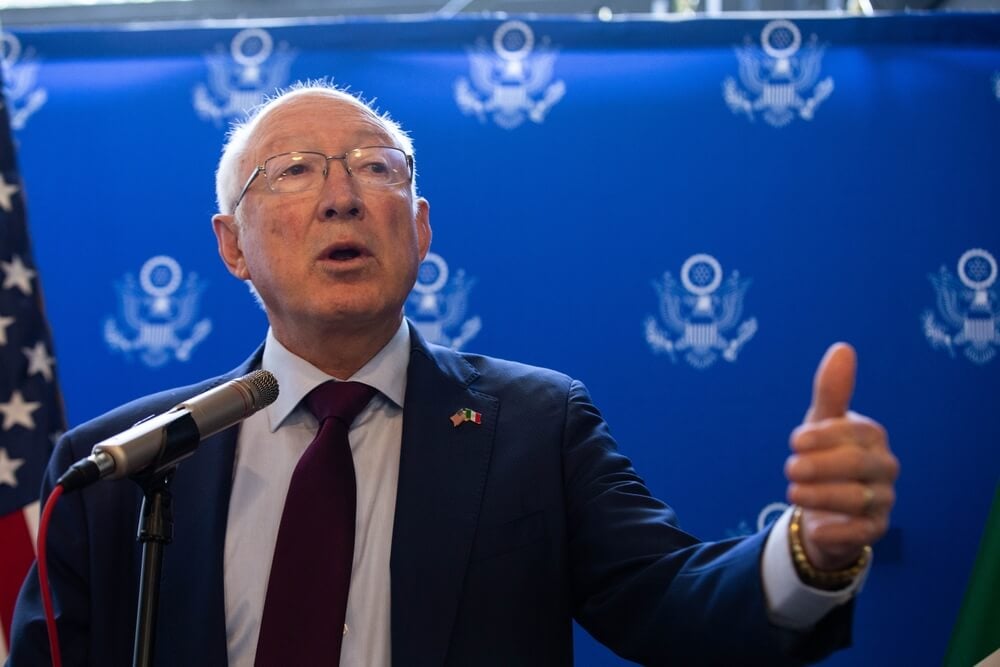Mexican President Andrés Manuel López Obrador decided to spend the last month of his term working at full capacity, as if he had just taken office.
He is well on his way to leave behind a legacy that will mark the country's political life for at least the next few years, if not decades, before leaving the office on October 1.
Last Wednesday, the Lower House of the Mexican Congress, dominated by Obrador's leftist Morena party, adopted his initiative to amend the Constitution, paving the way for direct election of judges at all levels in the future.
The fate of the historic judicial reform, initiated by the outgoing president, will depend on the vote in the Senate, the upper house of parliament, where it is still expected to win a narrow majority.
Large protests in front of Congress accompanied the confirmation of significant changes in the judiciary, painting a picture of the social conflict that will accompany their implementation over the next three years.
Is there any authoritarianism?
Despite leaving the presidential cabinet in less than a month, Andrés Manuel López Obrador will leave the implementation of reform in the hands of his successor and protégé, Claudia Sheinbaum, who won the June 2 presidential election in a landslide.
“There will be more and better rule of law and more democracy for all. If judges, magistrates, and ministers are elected by the people, where is the authoritarianism?” wrote the elected president on X after the all-night passage of judicial reform in the lower house of Congress.
Many fear that the revolutionary change, both in scope and essence, could negatively impact the fragile Mexican democracy
However, many fear that the revolutionary change, both in scope and essence, could negatively impact the fragile Mexican democracy.
All judges in the country, from the local level to the Supreme Court, will be subject to this change, requiring direct election by citizen votes.
There are approximately 1,700 federal judges, including Supreme Court judges, as well as about 5,000 state and local judges.
Up until now, requirements for becoming a judge included a multi-year promotion procedure, evaluating performance, expertise, and objectivity. If the reform is formally implemented, any lawyer will be able to apply for the position of judge in the future, regardless of whether or not he has court experience.
Fear of cartel influence
The main concern of the reform's opponents is the loss of judicial independence, as politics will undoubtedly influence the future candidacy and election processes.
The presidency, parliament, and judicial branch will nominate candidates, potentially placing future judges under strong political influence. The ruling Moreno party, which has a supermajority in parliament and its own man as president, is currently influencing the process.
Also, direct election will keep judges obliged to respond to the wishes and attitudes of their electorate, much more than to adhere to the principles of impartiality and objectivity when making decisions.
 Direct elections would make it easier for cartels and other bad actors to take advantage of politically motivated and inexperienced judges - Amb. Ken Salazar
Direct elections would make it easier for cartels and other bad actors to take advantage of politically motivated and inexperienced judges - Amb. Ken Salazar
One of the biggest risks in the implementation of the new model will be the influence of drug cartels on the election of judges, given that they have previously interfered in the political process of electing local and state institutions.
Campaigns in Mexico have long been characterised by money and pressure on voters, including extreme violence against candidates, so there are legitimate concerns that the same model will now apply to the election of judges.
“Direct elections would make it easier for cartels and other bad actors to take advantage of politically motivated and inexperienced judges,” said Ken Salazar, the US ambassador to Mexico, ahead of the adoption of changes in the judiciary.
Is economic cooperation with the US threatened?
That was just one aspect of the harsh criticism of the proposed changes, which prompted Mexican President Obrador to express his indignation at the US and Canadian ambassadors. As a result, he announced last week that he had put relations with these embassies "on pause."
However, even after the break, there will be dissatisfaction and concern among Mexico's two main economic partners, where trade in the triangle reaches almost $2 trillion per year.
The entire Mexican judicial system will be exposed to great risks of politicisation and bias
If the reform takes effect and the only thing missing is confirmation in the Senate, the entire Mexican judicial system will be exposed to great risks of politicisation and bias, which is an environment feared by the largest continental trade and investment partners.
“This is a big swing from the momentum Mexico enjoyed the previous four years, when its market enjoyed an environment where politics seemingly didn’t matter, which markets love, to one where politics mean everything, which markets hate,” said Malcolm Dorson of New York-based Global X, according to the Wall Street Journal.